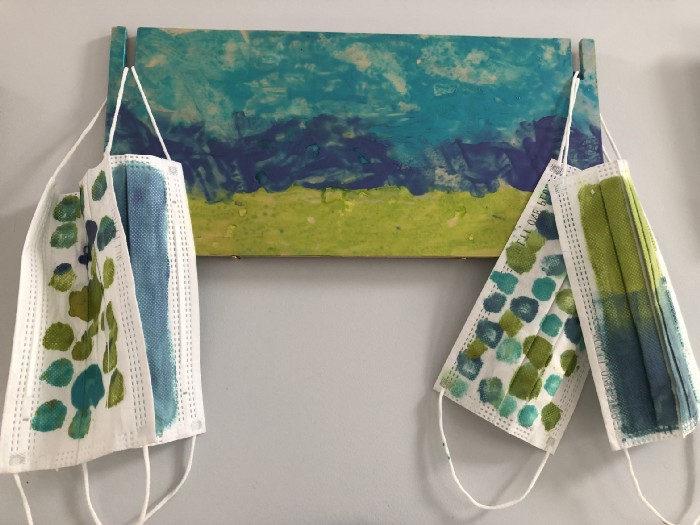Author
Educator
My work is focused on solutions to help students, educators, administrators and community members and their organizations/institutions thrive, not just survive.

My work is focused on solutions to help students, educators, administrators and community members and their organizations/institutions thrive, not just survive.


Recent students are identifying how many children lost parents and guardians and primary caregivers during the Pandemic across the globe. By any measure, the numbers are staggering. If you add in the number of grandparents and relatives and educators who have died, many children will have experienced death during the past 18 months (and that doesn’t include death from non-Covid related causes or continuing illness and/or hospitalizations).
Read this story in the New York Times:
https://www.nytimes.com/2021/07/20/opinion/covid-19-orphans.htmlHere is what concerns me. With the reopening of schools for in-person learning in August/September 2021 (whether previously open or hybrid or virtual), schools seem to be focused on the physical wellbeing of returning students and educators. And, with new variants and concerns about vaccinations (the lack of them, the effectiveness of them, the possible need for a booster, mask debates), physical health and safety remain a key issue.
But, what is also true is that students and educators will be bringing a host of mental health issues into the building; as the title of my new book suggests, trauma doesn’t stop at the school door. The trauma backpack that children (and educators) carry will have grown over the past months. School counselors, school nurses, teachers, coaches, food service providers, bus drivers, aides, librarians: all of these individuals need to be able to see and understand the symptoms of traumatized children and be prepared to handle what will likely occur within and outside the classroom. They need to know how grief manifests.
Add to the issues of social isolation, masking, illness, family dysfunction, job loss, food scarcity, loss of homes and evictions is death. Students and families have lost loved ones; many grieving rituals (religious and non-religious) have been truncated or deferred or just eliminated. The process of grieving will come to the fore when students head to school and separate from remaining family, especially if they are entering a new school. And, in schools that have lost beloved educators, students will enter with losses and then experience new losses.
And, as if all of this were not enough, trauma anniversaries are fast approaching. These serve as triggers — retriggering earlier trauma that may or may not have been fully processed. How we manage these deaths and their anniversaries is a tough task, reflecting on ways the commemorate those we have lost in ways that are respectful and meaningful and impactful. And, there are concerns about privacy and culture and custom.
Now ask yourself: how ready are schools to deal with this grief? The linked article below showcases that some schools that are preparing for these issues and have approaches in place. Were I a guessing person, this is not the norm. Historically, we have been reactive not proactive with respect to death and dying. The emotional and social needs of students is actually even more important now than ever before. And as we reflect on what we have lost over the past months, content learning is way easier to restore than social and emotional needs.
Here’s a suggestion (and I actually offer a course on Trauma Anniversaries at Rutgers Graduate School of Social Work and have written on this very topic): institutions and those within them need to use the three P’s: PLAN, PREPARE and PREDICT.
We need to think about how to help our students in advance of their arrival. We need to have discussions with many constituencies — families (some of whom may be reluctant to share all that has occurred), religious leaders, teachers, counselors and administrators. Parents/family members too. It is vastly better to plan and prepare than to “wing it” howsoever thoughtful our instincts are.
And, we need to get a sense of how large an issue this will be in each of our schools. For schools serving populations struck with devastating frequency during the Pandemic, we need to be ready. If we can know of specific losses in advance, that would be key. How we gather those data are a complex and sensitive issue to be sure.
This particular blog is not the place to identify all that schools can and should be (such a piece will follow). For now, the point is to have schools ask the right questions. It is to get schools to reflect now — hearing the voices of the many — on how to reopen optimally and sensitive to those who have died from Covid.
And:
My team is offering a webinar for free on August 7th at noon (est) on how to reopen schools optimally and we provide concrete suggestions. Our team has experience in schools and in psychology and trauma. This event is limited enrollment and is sponsored by Delta Kappa Gamma International, the remarkable women educators honor society. Below is the link to register. And while the webinar is free by design, we welcome donations via GoFundMe for the Virtual Teachers Lounge we are running to help teachers across the globe navigate forward in these difficult times. The donation link is provided too and the Virtual Teachers Lounge website is :
www.virtualteacherslounge2021.com.
We look forward to sharing ideas together and preparing our schools to serve the students who will be re-entering our doors. They need us to be our best. They need us to understand who they are. They need us to understand the price paid for the Pandemic in all its dimensions. They need us to be prepared.
Donate to the Virtual Teachers Lounge for 2021-2022
https://www.gofundme.com/f/gofundmecomfcontinuing-virtual-teachers-lounge